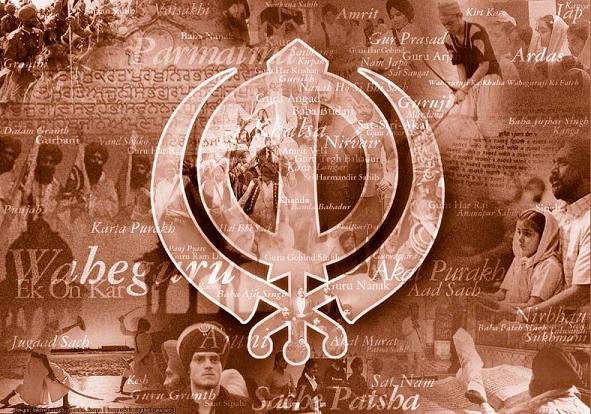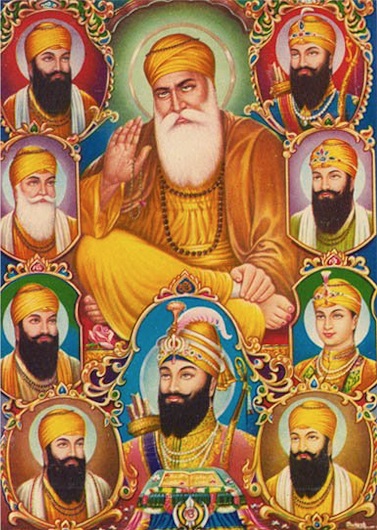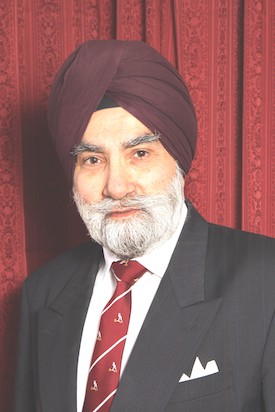Remember His supreme sacrifice while celebrating Parkaash Gurpurb
“Has the world produced any more men as great as Guru Gobind Singh ?”
That was the question S. Khushwant Singh asked at the end of an article in the Sikh Review of January 1967. This month, as we celebrate the parkaash of Guru Gobind Singh ji, it is only by meditating on the meaning of Sarbans Daani that we can answer Khushwant Singh’s question.
Sarbans means the entire family. Daan is giving away for the
benefit or the good of someone else. Sarbans daani is one who
gives away or sacrifices his all, his entire family, for others, so
that others may live better lives. Next generations should get
to know Sikhi words like parkaash and sarbatt da bhalaa. (My
translation of Bhai Rama Singh ji’s biography from Panjabi to
English was partly written with this aim in mind - ebook
![]() )
)
In case of Guru Gobind Singh, the sarbans daan of his parents and four Sahibzaaday, was for his beloved Khalsa; and through the Khalsa for a better future for his countrymen and for sarbatt da bhalaa, for whole humankind. Guru Sahib himself was mortally wounded by an assassin sent by the treacherous Emperor Bahadur Shah, unable to deliver own promise to punish the powerful Nawab of Sirhind, who had ordered the martyrdom of the Chhotay Sahibzaaday, Baba Jorawar Singh and the youngest, Baba Fateh Singh. Sirhind was the centre for Islamic fanaticism led by Shaikh Ahmad’s school of thought, which directed cruelty by Muslim rulers on non-Muslims, not only in India but also in the Middle-East.
Guru Gobind Singh ji’s mission was clear from the outset:
"I came into the world charged with the duty to uphold the right in every place, to destroy sin and evil... the only reason I took birth was to see that righteousness may flourish, that good may live, and tyrants be torn out by their roots."
We need to bear in mind, that this was a land, where before the Guru period, sacrifice for a righteous cause was unheard of. Wars were for own possessions or kith and kin. The Vedic myths did not promote any sense of mission or vision for general good. For example, an oath by Devavrata (later called Bhishma, a Mahabharat hero) to remain celibate was hailed as a supreme sacrifice for his father, Santanu, king of Hastinapur, so that the latter could remarry a fisherman’s daughter, Satyawati.
This was the sort of society divided by caste, ritualism and superstition, which Guru Gobind Singh awoke from slumber, to produce saint-soldiers, invincible warriors for the righteous cause, by sacrificing his all and then saying in Chardhi Kalaa, “What if four sons have died, for thousands (of my sons and daughters) live on!”
To answer to Khushwant Singh question: No! The world has produced none other like Guru Gobind Singh ji.
© Copyright Gurmukh Singh (U.K.)
E-mail: sewauk2005@yahoo.co.uk
Please acknowledge quotations from this article
Articles may be published subject to prior approval by the author


